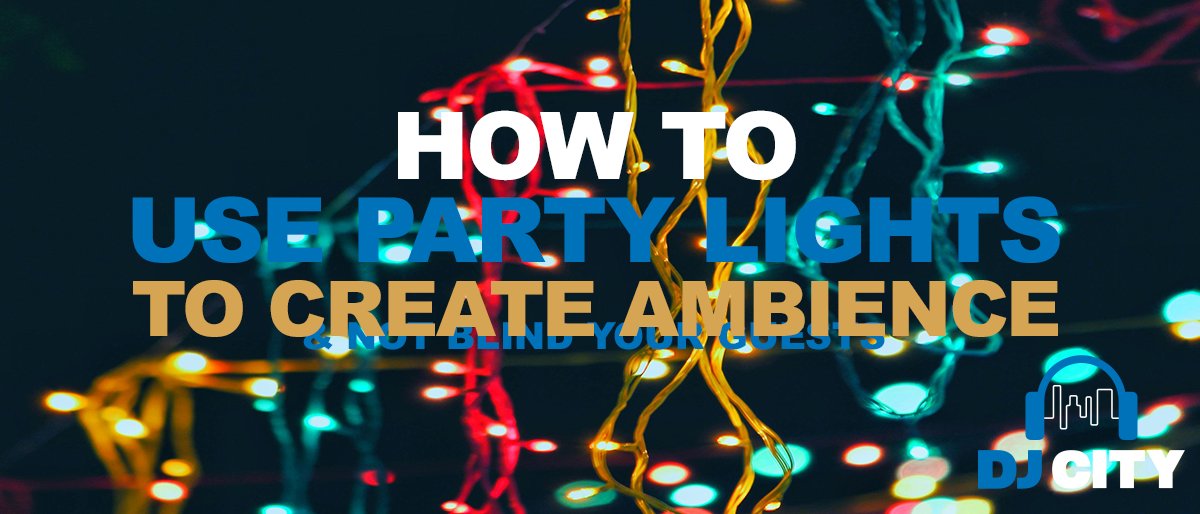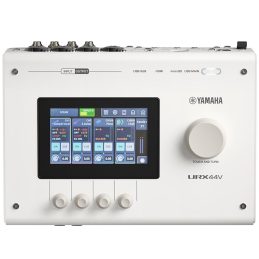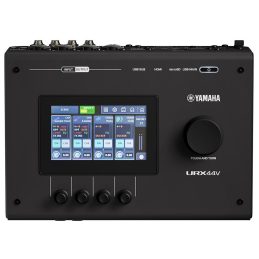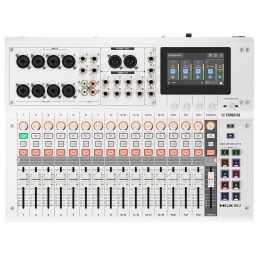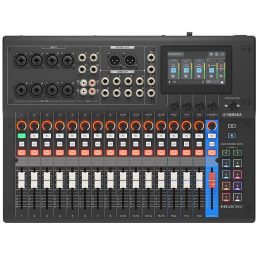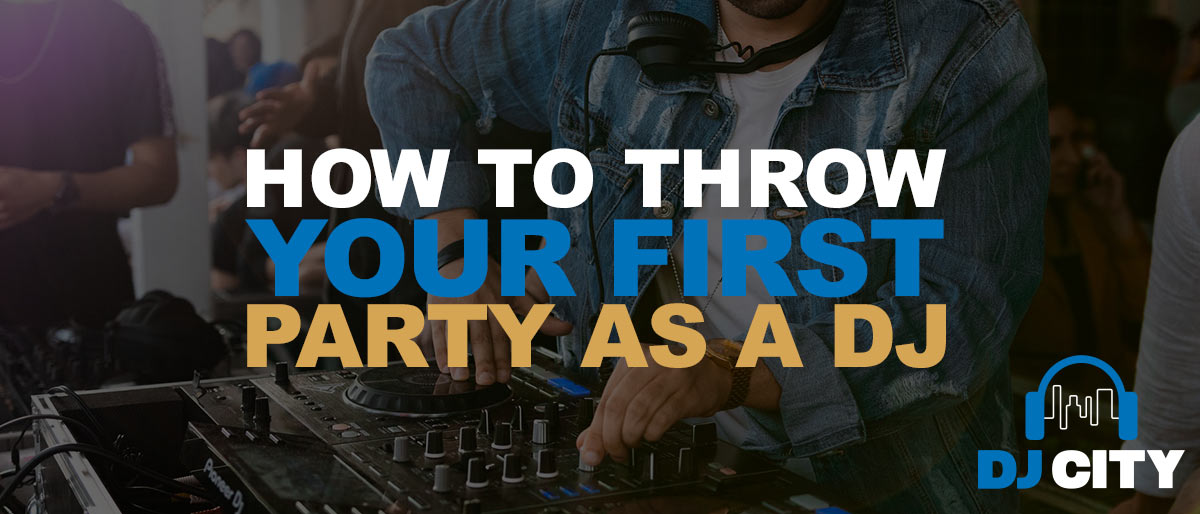
Why You Should Throw Your Own Parties
There are a lot of skills to learn on your journey to becoming a successful DJ. Of course, the technical skills and techniques needed to actually perform at your DJ, as well as the associated self-promotion and gig management, is of prime importance, but knowing how to throw your first party as a DJ will give you a leg up in the industry.
Why throw your own parties at all? Consider why should you spend time learning how to DJ your own party when you can just focus on the DJing itself at other people’s parties and events?
The number one way to improve your skills as a DJ and get your name out in the market is by throwing and playing at your own parties. Not only will you develop your musical skills hugely, but you’ll also have the chance to hone skills as a promoter, organiser and manager.
Additionally, as the size and scope of your parties improve and grow, you’ll be able to promote your music more efficiently and spread your name and reputation further and wider. Even if you don’t have friends in your network with good industry connections, going the hard yards and doing the work will be the best way to improve your skills and promote your career.
Throwing your own party gives you the chance to design a party to suit your preferences, headline yourself and control the entire event. These are more often than not privileges that up and coming DJs aren’t afforded at other people’s parties. If you throw your own party or know how to, you’ll enjoy greater confidence in your own job security even if venue or club owners change and consequently change deals with you.
Last but not least, throwing a party costs money and makes money. Learning how to successfully budget, plan and throw a party will force you to brush up on your management, organisational and general business skills. Believe it or not, but all of this comes in handy for DJs big and small.

Tips For How To DJ Your Own Party
Before we break down the general, larger aspects of DJing at your own party, here are a few tips to bear in mind throughout the process to help ensure success.
1. Follow A Checklist
There’s a lot to do and remember when throwing a party and the easiest way to keep organised and on top of it all is by following a checklist. There are plenty of free examples available online but over time it’s helpful to put together and customise your very own list that suits your work style and purposes.
2. Choose A Party Name and Concept Early
Choosing a name and concept for your party is essential and should be the first decision you make. The reason why is because this will give you the direction with which to make the other decisions and help you develop a cohesive party.
So how do you make these decisions? Ask yourself some questions:
- What sort of audience is trying to appeal to?
- Consider what sort of parties are there currently going to?
- What kind of music do you want to be playing?
- Is there a gap in the DJ party market you can fill?
- What do you intend to do with your party to stand out by what’s currently on offer?
With regards to the name, try to think of it as more of a brand than a title. What sort of name do you want your party to be associated with? You can always get a quick little logo designed online as well for use in promotional material.
If you’re struggling with this step, try discussing it with friends in the industry. Ask them whether they would attend and, if not, why not?
3. Prepare for the Future
The best way to build your career as a party DJ is by building on your events, from one to the other. Spend some time and energy getting the email addresses for everyone at your party (the easiest opportunity is when they purchase tickets) so that you can email them direct invitations for the next party.
Spend some time getting photos, videos and other social media content for sharing online. This arms you with additional promotional material for the next event.
Lastly, always treat the staff at the venue with respect. You’ll want to leave a positive impression on the venue manager and their staff so that they’ll want to have you sticking around and will spread your good name to producers in their network.

4. Don’t Do It Alone
It can be tempting to fly solo, after all, it gives you complete control. But it’s always easier and more enjoyable to throw a DJ party with someone else. You can share the work and get twice as much done in half the time. Plus, you’ll have double the network to leverage off for attendees. As long as you have a collaborative and positive working relationship, and you work well together, there’s always benefit to partnering up with a trusted friend or peer.
5. Be Budget-mindful
Your event, your responsibility. It can be easy to be lured into the spending money trap trying to get everything to seem professional and grandiose. If you can work on a tight budget and keep spending to the minimal amount, you’ll be able to maximise returns on the party which can be invested in bigger and better parties in the future. Here are some ways of working within a tight budget:
- Connect with graphic design students to help produce your artwork for free. (Always remember to give them credit.)
- DJ yourself and don’t spend money booking famous DJs.
- Don’t book a venue that’s bigger or grander than your needs.
- Don’t pay for online or other forms of advertising until you’ve smoothed out your entire party organisation methodology and have had successes in the past.
6. Keep It Fun!
We won’t sugar coat it, it can be stressful and overwhelming throwing your own party. Being superbly organised will help limit the amount of panic and anxiety you’ll feel, but it can still be draining. Remember that no party turns out exactly as planned. Things go wrong or work out differently no matter how prepared you are. Always make sure you’re having fun, at least outwardly, because your vibe will affect the entire event.
7. Don’t Make Unrealistic Commitments
Throwing your own party is a lot of work and can be draining. We recommend starting with one event and then slowly building that up to a few times a year. Trying to commit off the bat to monthly or weekly parties is the surest way to burn bright and burn out in a flash. Be confident in your own ability as a DJ and as a party/event organiser, but keep your expectations and commitments realistic.
Remember that all DJs experience ups and downs. Some aspects of your party may exceed expectations and some may fall short. It’s normal and to be expected. Both experiences offer you a lot of opportunities to learn and improve your skills in the future.
Having said all that, embrace the hustle. Book your next party (if you intend on throwing one) immediately, and throw yourself into the self-promotion and networking required to kick off your successful DJ career. DJs should exude confidence, and you should definitely feel internal confidence in your own skills.
How To Throw Your First Party Like a DJ

Now, let’s dive into the three bigger aspects of throwing your first-party:
- Venue hire
- Party preparation
- Promotion
Venue Hire
We get it, you’re dreaming big and that’s good when it comes to ambition, but it’s bad when it comes to party planning. You want to start small. Sound counterintuitive? Just think which you would rather: 50 people showing up in a venue that can fit 75 people or 50 people in a venue that can fit 100 people? Whatever size venue you’re considering the general consensus is to actually halve it. So if you intend on having 200 people there, go for a venue that fits 100 people.
You’re in this for the long game. Building up your sold-out parties slowly over time is much better than half-empty venues from the get-go.
When you approach venue managers, remember to make the proposed partnership worthwhile for them. You shouldn’t have to pay for the venue if you are able to guarantee them attendees and thus patronage to their club. There’s plenty of profits for managers through the bar, so if you can offer them all the hard work getting people into the club for them, they’re bound to be interested. It would help if you came to them with a party plan outlined already, including the promotional activities and ticket selling strategies. Make the offer of partnering with you too valuable to be missed.
Of course, not every venue suits every party. Revisit the concept behind your party and make sure that the venue you choose complements the choice and doesn’t detract from it.
Ideally, your venue should be booked out at least two to three months before the actual event.
Party preparation
This is the part of throwing your own party as a DJ that really requires a checklist to help you keep on track. You can’t be too prepared or too organised. Your checklist should cover everything and anything you need to consider or arrange, including but not limited to the following.
Equipment
What gear do you need? If you’re not in a position to invest in the equipment yourself, hiring or–better yet–borrowing the equipment is always an option.
Decor
Think about the brand and image you want to be associated with the party. This should be reflected in the artwork and promotional material as well. Connect with local arts and event planning students to offer them opportunities to volunteer and add projects to their own portfolios. (Mutually beneficial partnerships are the way to go.)
Tickets
As much as you want to focus on DJing and partying, you need to think about the business and financial side. Unless your party is going to be free, you need to think about your ticket pricing. How will you be selling it and how many tickets are going to be available?
Music
You are a DJ after all and this party is an opportunity for you to show the world what you can do. So spend some time and take care planning the music. Think about the whole night and the experience you want attendees to have. Leave yourself plenty of time to plan the music out and practice before the big night (or day).
Promotion
Always leave at least four weeks or so to promote your party. Most likely, the main attendees to your first-party will be people you already know. And many of the people you may be tempted to rely on to come might not. Getting the word out far and wide is really, really important without putting all your eggs in one basket.
Start off by going through your own contact list. Use email, text message, social media posts and direct messaging, and any other message you can think of to promote your party. Most people aren’t spurred to action until they are ‘touched’ (i.e. contacted) multiple times across multiple channels. Promote yourself on social media as well, but don’t rely on people clicking as ‘going’ to a Facebook event as a confirmed attendance. It’s far from confirmed, unfortunately.
Old school promotion is also valuable. Put up some quality printed posters in colour at the venue where your party is being held (and similar venues if they’ll let you). You can try to get on to local radio stations, magazines, newspapers and online directories that deal in the music scene. The more public exposure you get, the better!
Ideally, all your tickets–assuming you’re selling them–should be sold before the night itself, and even if you intend on selling tickets at the door, you should leave no stone unturned or effort spared in your attempt to promote your party beforehand.
Let the Team at DJ City Know How We Can Help
DJing at a party is one thing, but DJing at a party you’re also throwing is something entirely else. With this guide to get you started planning your first party, you’re in as good a position as ever to get started throwing your own party as a DJ. Remember to be confident, be organised and have fun. If you need some help along the way, why not give the team at DJ City a call. We’d love to help!



